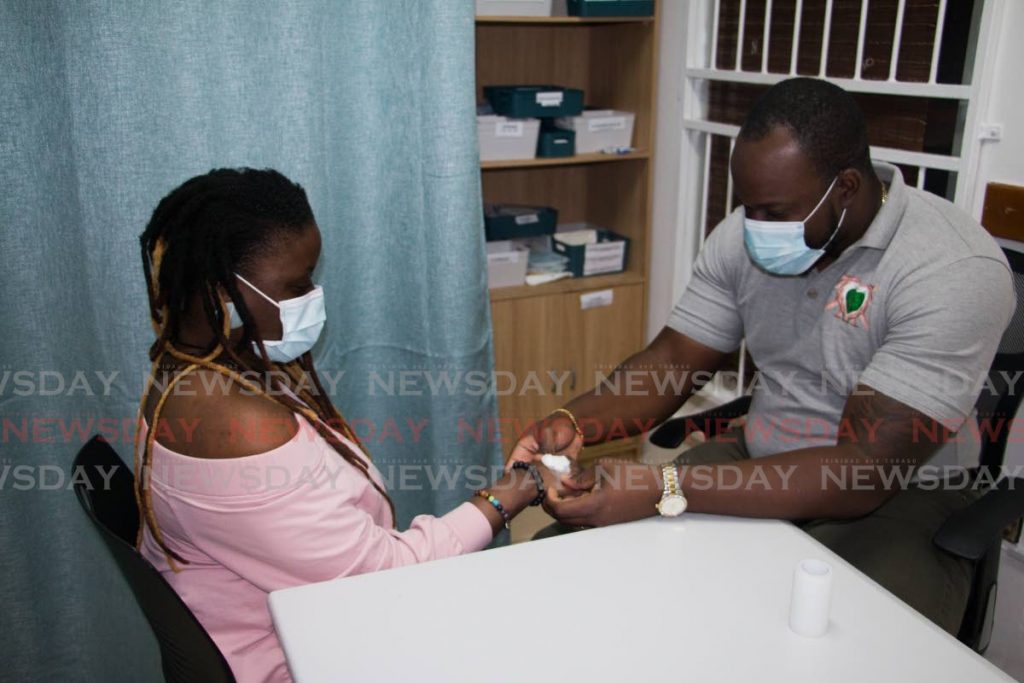To tackle covid19 head on, transform healthcare from within

kmmpub@gmail.com
If we are to attack covid19 head on, we need to transform private healthcare from within. We can save the lives of the one in two people who are dying now from totally preventable chronic diseases, and are among the first to be cut down by covid19. If we dramatically shift the focus towards primary care, enlist insurers, and adopt digital tools on a mass scale, we can not only save those lives, we can turn the $4 billion private healthcare industry in TT into an engine of economic growth.
I spoke with Dr Vishi Beharry, president of the TT Medical Association, on how we can get started.

Sixty-one per cent of deaths are caused by non-communicable diseases. How can we transform the private healthcare industry in TT to tackle this?
We must first begin by tackling the culture of how we approach our healthcare. The culture of the country is that they (people) go directly to a specialist for treatment instead of going to their family doctor for preventative care.
Once this culture remains, primary care will always suffer. They will create demand for specialist and tertiary care that exceeds supply. It really is about demand and supply.
We must start by educating the consumer must on the role of primary care. Take for example, screening. The guidelines say that any female over 40 years should have a mammogram and a breast ultrasound performed by a radiologist. If we actually screened everyone in line with this schedule, we would see almost no late-stage breast cancers.
But there is a misconception that more primary care means less specialist care overall. This isn’t the case. After all, the more you screen, is the more you will find. There will not be a reduction in demand: there will be an increase in overall health. You will not eliminate the need for secondary and tertiary care.
I’ve been often struck by the fact that most doctors have a patient book in the thousands, but very few see all their patients annually. Could we transform the system by improving patient follow-up?
If you see a patient and you recommend an intervention, you need to follow up in three months, you need to get the patient back on their treatment. If you leave it up to the patient, people can forget. You need to set up a system that make it seamless and easy to remind people what to do next. If a doctor can do that, that can dramatically improve the quality of care, and even increase your income.
But the problem is, I have thousands of patients to follow up on, to remember their files and histories, and identify what you and they need to act on.
How can digital health help with this, especially since 70 per cent of a patient’s diagnosis is based on their history?
In the context of digital health, this is where automated reminders and artificial intelligence come in. With manual, written records, if my secretary or nurse doesn’t understand the phrases that I write, they can often enter incorrect information.
If I have the files digitally or via a form of electronic medical records, I can easily pull the history up and understand why this reminder has come up. I am now able to be better prepared for that condition.
We need to start using these tools, especially secure ones that prevent medico-legal liability.
There are already systems that that use AI to review prescribing patterns and match them with diagnoses and integrate automatic reminders: digital tools that can make the whole process easier.
Right, so a focus on primary care can boost the healthcare industry while improving patient outcomes. In other countries, we are seeing insurers taking a much more active role in healthcare, as they are directly invested in patient outcomes. How can insurers improve public health in TT?
There is still a gap between the insurance companies and the primary-care physicians. Insurers should educate healthcare professionals on how insurance companies work. If for example, insurance companies educated doctors simply on how to fill out an insurance form – that could change so many people’s healthcare experience and avoid financial stress. So many people get their claims rejected and suffer stress.
The medical fraternity should also engage insurance companies to have discussions on what can be recommended standard fees. If we give a guide and set a standard, doctors will be able to work with them to encourage more patients to get health insurance. The doctors can become the voice of health insurance. This will both expand the industry and improve patient care.
Kiran Mathur Mohammed is an economist and co-founder of medl, an IDB lab-backed social impact health tech company


Comments
"To tackle covid19 head on, transform healthcare from within"